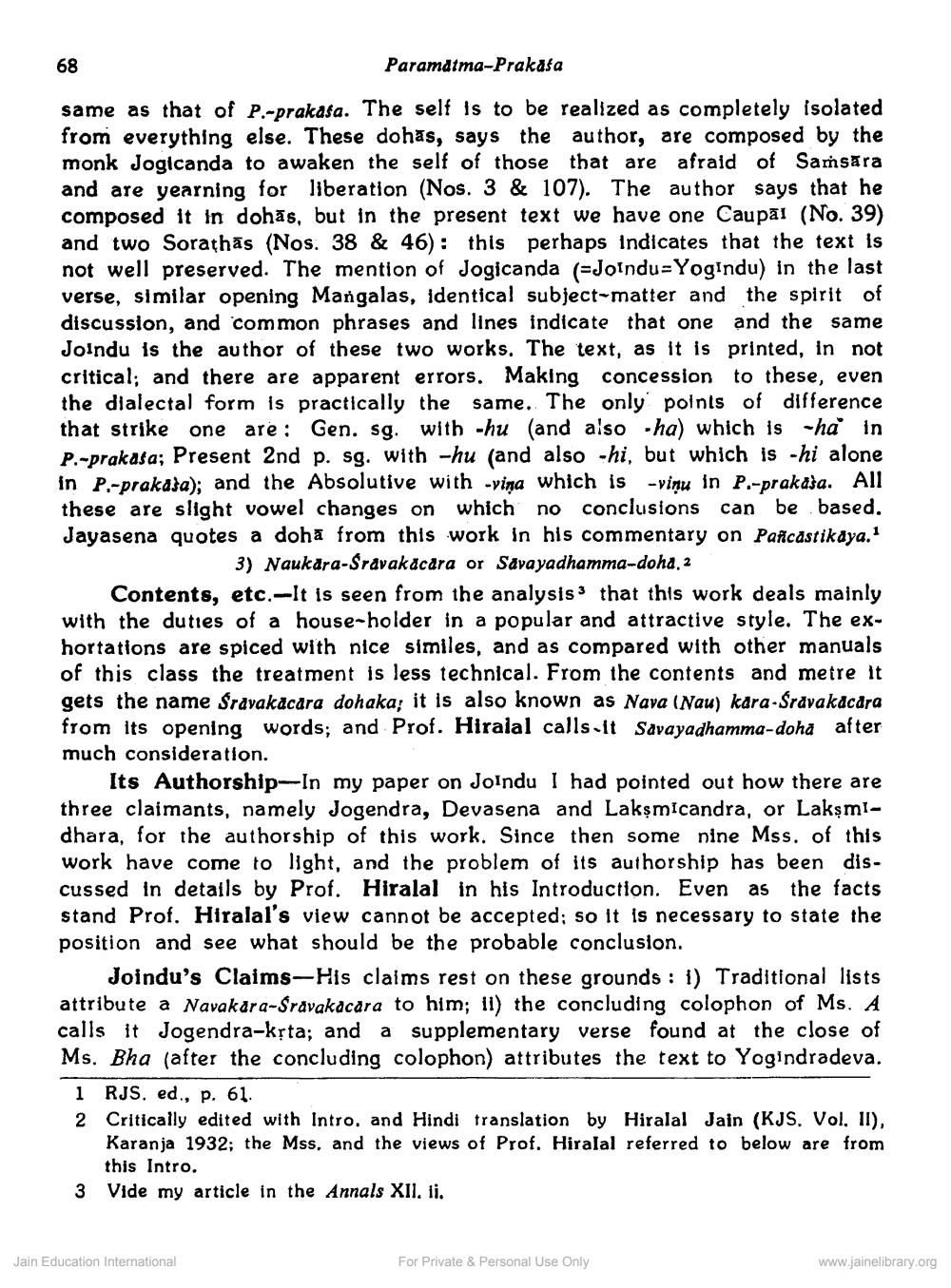________________
68
Paramdtma-Prakasa
same as that of P.-prakasa. The self is to be realized as completely isolated from everything else. These dohas, says the author, are composed by the monk Jogicanda to awaken the self of those that are afraid of Saṁsāra and are yearning for liberation (Nos. 3 & 107). The author says that he composed it in dohās, but in the present text we have one Caupal (No. 39) and two Sorathās (Nos. 38 & 46): this perhaps indicates that the text is not well preserved. The mention of Jogicanda (=Joindu-Yogindu) in the last verse, similar opening Mangalas, identical subject-matter and the spirit of discussion, and common phrases and lines indicate that one and the same Joindu is the author of these two works. The text, as it is printed, in not critical; and there are apparent errors. Making concession to these, even the dialectal form is practically the same. The only points of difference that strike one are; Gen. sg. with-hu (and also ha) which is chain P.-prakasa; Present 2nd p. sg. with-hu (and also -hi, but which is -hi alone in P.-prakaša); and the Absolutive with vina which is - viņu in P.-prakása. All these are slight vowel changes on which no conclusions can be based. Jayasena quotes a doha from this work in his commentary on Pafcastikaya."
3) Naukara-Sravakacara or Savayadhamma-doha. 2 Contents, etc.-It is seen from the analysis, that this work deals mainly with the duties of a house-holder in a popular and attractive style. The exhortations are spiced with nice similes, and as compared with other manuals of this class the treatment is less technical. From the contents and metre it gets the name Sravakácara dohaka; it is also known as Nava (Nau) kara-Sravakacara from its opening words; and Prof. Hiralal calls it Savayadhamma-doha after much consideration.
Its Authorship-In my paper on Joindu I had pointed out how there are three claimants, namely Jogendra, Devasena and Lakşmicandra, or Lakşmidhara, for the authorship of this work. Since then some nine Mss. of this work have come to light, and the problem of its authorship has been discussed in details by Prof. Hiralal in his Introduction. Even as the facts stand Prof. Hiralal's view cannot be accepted; so it is necessary to state the position and see what should be the probable conclusion.
Joindu's Claims-His claims rest on these grounds : 1) Traditional lists attribute a Navakara-Sravakacara to him; 11) the concluding colophon of Ms. A calls it Jogendra-krta; and a supplementary verse found at the close of Ms. Bha (after the concluding colophon) attributes the text to Yogindradeva. 1 RJS. ed., p. 61. 2 Critically edited with Intro. and Hindi translation by Hiralal Jain (KJS. Vol. II),
Karanja 1932; the Mss, and the views of Prof. Hiralal referred to below are from
this Intro. 3 Vide my article in the Annals XII. li.
Jain Education International
For Private & Personal Use Only
www.jainelibrary.org




